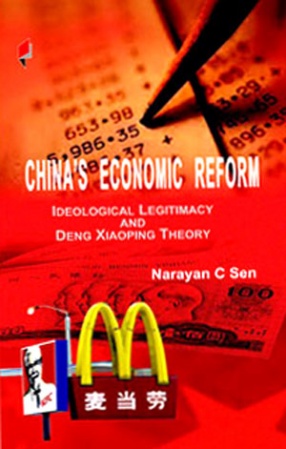Chinas Economic Reform: Ideological Legitimacy and Deng Xiaoping Theory
In stock
Free & Quick Delivery Worldwide
China’s economic transformation, introducing private economy, stock exchange, induction of foreign direct investment (FDI), disinvestment or total closure of state-owned enterprises and, above all, the shift from ‘planned economy’ to ‘socialist market economy’, has been a topic of wide-ranging discussion and apprehension, especially in the context of the country’s adherence to the philosophy of Marxism–Leninism and Mao Zedong Thought.
China’s Economic Reform: Ideological Legitimacy and Deng Xiaoping Theory examines the discussions and debates among Chinese theoreticians and economists regarding the economic reform measures adopted by the leaders of the Communist Party of China (CPC) in the late 1970s. Based on an extensive survey of Chinese material, the study focuses on the internal discourse on the nature and rationale for economic reform, the decision to implement the “open-door” policy; as well as the attempts to legitimise the transition from a planned to a market economy. It also outlines the evolution of Deng Xiaoping Theory and the concerns of Chinese theoreticians and economists about the problems and prospects of the economic reform. More importantly, it endeavours to bring to light the Chinese attempts to explain and legitimise the economic reform in relationship to the ideals of Marxism and Mao Zedong Thought.
Mao Zedong propagated building socialism with Chinese characteristics to make China a strong socialist country. However, concrete measures to realise the objectives were eventually undertaken by Deng Xiaoping, no less a person than the man once condemned as ‘No 2 Capitalist Roader’. The book reveals how non-dogmatic ‘Seek truth from facts’ principle of ‘Deng Xiaoping Theory’ acted as the driving force to make China the world’s second largest economy in 30 odd years.
Bibliographic information
Title
Chinas Economic Reform: Ideological Legitimacy and Deng Xiaoping Theory
Author
Edition
1st ed.
Publisher
Frontpage, 2011
ISBN
9789381043028
Length
xv+223p., 22cm.
Subjects





There are no reviews yet.